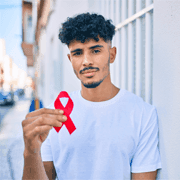Normal Blood Sugar Levels in Adults with Diabetes
In This Article
Normal Blood Sugar Levels in Adults with Diabetes
Winnie
Updated on June 28, 2024
Medically verified by Dr. Arya
Fact checked by Sreemoyee

Wellness
6 min read
Do you have Diabetes? Are you looking for options to control your sugar levels?
Mykare Health is here to guide you through the process.
Through this blog, you will get an idea about the normal blood sugar levels in adults with diabetes and how to keep them under control.
Let’s dive in.
Blood sugar level and diabetes
Diabetes is a disease where the body has an impaired ability to either produce or respond to the hormone Insulin. High blood sugar levels are dangerous and need attention.
Diabetes is a difficult condition, and it's critical to your physician if you're worried about your glucose levels.
Tests can be arranged to confirm a diagnosis of diabetes or prediabetes and provide treatment recommendations. Certain life changes may also help to keep your glucose levels within the recommended range.
The most common symptoms are excessive urination, excessive thirst and hunger, and weight loss.
There are two types of Diabetes which are Type 1 and Type 2. In type 1 diabetes patients the pancreas does not make insulin.
Whereas in Type 2 diabetes the patients have cells in the body that are resistant to insulin or have a pancreas that slows or stops producing adequate insulin levels (blood glucose).
The normal ranges for blood sugar levels in adults who do not have diabetes while fasting are 72-99 mg/dL. These ranges may increase to 80-130 mg/dL for patients treated for diabetes.
High blood sugar ranges for people who don’t have diabetes begin at 140 mg/dL, and those being treated for diabetes have a high-range starting at 180 mg/dL
Symptoms of High Sugar Levels
- Higher risk of stroke
- Higher risk of heart attack
- Higher risk for infections
- Blurry vision
- Kidney and eye damage
- Poor blood flow to legs and feet
- Nerve damage called neuropathy
- Erectile dysfunction
- Weakened immune system
- Lower extremity Paresthesias (“pins and needles” sensations) and/or loss of feeling.
- Slow wound healing and the potential for amputation, in rare cases.
Sugar levels of 1000 or more mg/dL can lead to diabetic ketoacidosis, which can cause loss of consciousness and is life-threatening. Usually the treatment for excessively high blood sugar involves IV fluids and insulin.
Low blood sugar can also lead to problems. The common symptoms are hunger, Nervousness, Perspiration, Dizziness and even confusion.
If untreated it can lead to a condition called hypoglycemia. Hypoglycemia can cause unconsciousness, seizures, coma and even death.
Low blood sugar levels generally begin at 70 mg/dL or less.
Symptoms of Low Sugar Levels
- Hunger
- Shaking
- Sweating
- Rapid heartbeat
- Headache
- Dizziness
- Confusion and difficulty concentrating
 7 min read
7 min readPhysical Fitness and Sexual Health: How Exercise Boosts Your Sexual Life
 7 min read
7 min readSexually Transmitted Diseases: Types, Symptoms, Treatment
 14 min read
14 min readHow to Avoid Pregnancy After Sex
Get a Callback Now
How to manage Blood Glucose Levels?
-
Manage stress Too much stress is not good for health. Learning healthy ways to cope up with stress is important to keep blood sugar levels in control. Stress can be managed through therapeutic activities such as listening to music or going for a walk.
-
Exercise regularly Physical activity can make your body more sensitive to insulin. It helps to lower blood sugar up to 24 hours after exercise. But if you have ketones it is advisable to avoid exercise as it may cause your blood sugar to rise even higher.
-
Eat more fibre
-
Drink plenty of water Dehydration can cause blood sugar to be more concentrated leading to higher glucose levels. Staying hydrated can help regulate blood sugar by introducing more water into the bloodstream
-
Manage your carbs During the digestion process carbohydrates are broken down into glucose which can cause blood sugar levels to rise. Control in the intake of carbs can help manage blood sugar levels and can help some people with diabetes make sure they are getting enough insulin.
-
Eat moderate portions Key elements are to eat the healthiest food in moderate amounts that is naturally rich in nutrients and low in fat and calories. It includes fruits, vegetables and whole grains.
-
Get enough sleep Research suggests that poor sleep negatively impacts blood sugar levels. Proper sleep is very important to recharge your body. Try to get at least seven to eight hours of sleep per night. If you are having difficulty sleeping, speak with your healthcare provider.
-
Eat foods that are rich in chromium and magnesium Chromium plays a very important role in controlling blood sugar and triglyceride levels. Foods rich in chromium include nuts, vegetable oils, whole grains, beer, and mushrooms.
Some foods high in magnesium include dark leafy greens, seeds, and beans. Others include nuts and dark chocolate.
According to the American Diabetes Association, people with diabetes should have blood sugar levels of 80-130 mg/dL before eating a meal (fasting), and less than 180 mg/dL about 1-2 hours after eating a meal
High blood sugar ranges for people who don’t have diabetes begin at 140 mg/dL, while those being treated for diabetes have a high range beginning at 180 mg/dL.
Among all food varieties, carbs frequently affect glucose levels. That is because the body separates them into sugar, which raises glucose levels. Some carbs are preferable for you over others.
For instance, organic products, vegetables and whole grains are loaded with supplements. They have fibre that assists in keeping the sugar levels steady as well. Eat less refined, especially processed carbs. These incorporate white bread, white rice, sweet cereal, cakes, treats, sweets and chips.
Assuming that you take diabetes medication, it's vital to adjust what you eat and drink with your medication. Too little food with respect to your diabetes medication — particularly insulin — can prompt perilously low glucose. This is called hypoglycemia.
A lot of food might cause your glucose level to climb excessively high. This is called hyperglycemia. Talk to your diabetes medical care group about how to best facilitate dinner and medication plans.
Sugar-sweetened drinks are often high in calories and low in nutrition. They likewise cause glucose to rapidly rise. So, it's ideal to restrict these kinds of beverages assuming you have diabetes.
The special case is on the off chance that you have a low glucose level. Sweet beverages can be utilized to rapidly raise glucose that is excessively low. These beverages include soft drinks, soda, juice and sports drinks
Tracking your blood sugar is an important part in managing sugar levels.
Make sure to track it at home with a blood glucose monitor.
Always watch out for the signs of high blood sugar
Focus on eating less and stick to a healthy diet.
Talk to your doctor about your personal blood sugar goals.



